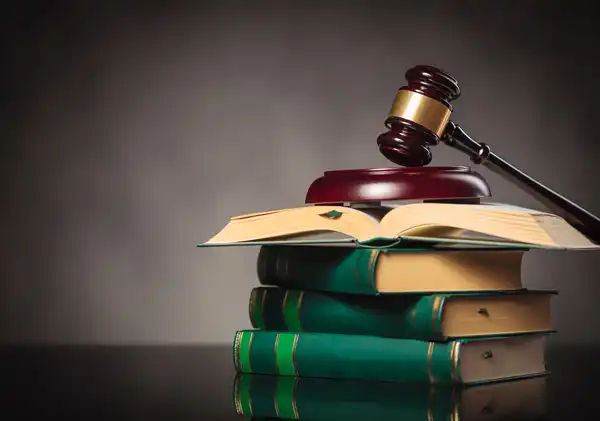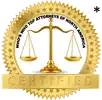
Machi Wright & Associates Explain the Differences Between Chapter 7 & Chapter 13 Bankruptcy
Bankruptcy is a scary word. No one ever thinks that bankruptcy could possibly become their reality, and most people have no idea what bankruptcy actually entails—the fear of the unknown and the “how did I get here” feeling combined often send people into a tailspin of despair and panic. However, bankruptcy isn’t all bad. It’s certainly not the end of the world or the end of your financial goals. In fact, if you are overwhelmed by debt that you can’t repay, bankruptcy may be the best option to help you eliminate most of that debt, start rebuilding your credit, and establish a healthier financial framework. Many people are unaware that there are actually different types of bankruptcy. The two most common kinds available to the average person are Chapter 7 and Chapter 13. If you are considering filing for bankruptcy, or want to know more about what that would practically mean for your life, learning about the benefits and specifics of each can help you better understand which one may be right for your needs. Here are some of the main differences between Chapter 7 & Chapter 13 bankruptcy and what you should know!What Is Chapter 7 Bankruptcy? Chapter 7 bankruptcy is also sometimes called “straight” bankruptcy or “liquidation” bankruptcy. Your unsecured debts—things like personal loans, traditional credit card bills, and more—can be completely eliminated if the process is successful. However, some of your nonexempt property will need to be sold in order to pay off your debt. “Nonexempt” includes a wide variety of things, though it may include your home in some cases (not in every situation, though). When you file, the court will take legal possession of your property and appoint a bankruptcy trustee to your case, who will review your financial situation and arrange for your creditors to be partially paid with your liquidated assets. At the end of the process, your remaining qualifying debts will be discharged, meaning you don’t have to pay them anymore.
What Is Chapter 13 Bankruptcy? Chapter 13 bankruptcy is also known as a “wage earner’s plan” or as “reorganization” bankruptcy. You will develop a payment plan with the court to pay back your creditors over a three to five-year period based on amounts that you can reasonably repay. Some unsecured debts will be able to be discharged at the end of the payment period. Chapter 13 gives you a chance to “catch up,” so to speak, especially when it comes to delinquent mortgage payments; you shouldn’t have to sell any of your property in order to satisfy your debts.
How Are They the Same? Both Chapter 7 and Chapter 13 bankruptcies trigger something known as an “automatic stay”. This means that once you file, creditors have to stop contacting or harassing you and must cease all collection efforts until the details of your bankruptcy are worked out. You’ll stop getting phone calls and threatening letters. If you’re facing foreclosure, that will temporarily halt (and in Chapter 13, the possibility of losing your home may disappear altogether). Any wage garnishment will pause. This can be a welcome relief for many people struggling under creditor pressure. Both Chapter 7 and Chapter 13 bankruptcies are ways for debtors to get out from under unsecured debts and back on their feet. Whichever you file for, it will result in some or most of your debts being erased, giving you a clean slate to start over. You will have to go through credit counseling and debtor education during either process, which is ultimately a good thing because it can give you tools to build healthier financial habits for the future.
How Are They Different? While both bankruptcy types have the goal of helping you get out of debt, the processes are not the same, and each has unique characteristics to consider. The main difference is how they work. Chapter 7 liquidates assets and uses the proceeds to pay creditors; Chapter 13 sets up a plan to repay creditors with your own disposable income over a longer period.
- Eligibility: Chapter 7 requires you to pass a means test (for low or no income); Chapter 13 is for those with steady income and certain debt limits.
- Debt Limits: Chapter 13 has a cap on the total amount of debt; no debt limit for Chapter 7.
- Timeline: Chapter 7 is faster—typically four to six months; Chapter 13 takes three to five years to complete the payment plan.
- Credit Report: Both types stay as negative marks, but Chapter 7 remains for 10 years, while Chapter 13 is removed after 7 years.
- Lenders generally view Chapter 13 filings more positively because debts are being partially repaid; you might find it easier to get credit in the future after Chapter 13.
- Property: In Chapter 7, you may lose some possessions if they are not exempt; Chapter 13 usually allows you to keep your property.
Which Is Better? Neither Chapter 7 nor Chapter 13 is inherently “better” than the other. The right one depends on your income, how much debt you have, what possessions you are at risk of losing, and your long-term financial goals. An experienced local bankruptcy attorney can explain your options in detail and help you decide which path best fits your needs.
Call Machi Wright & Associates At our firm, we have over 20 years of legal experience helping clients in Texas get a fresh financial start. Lead attorney Daniel Wright is a board-certified consumer bankruptcy specialist and a member of the National Association of Consumer Bankruptcy Attorneys. Trust our experience and personal attention to guide you every step of the way. Schedule your free consultation today!
All Blog Posts | Recent Blog Posts






